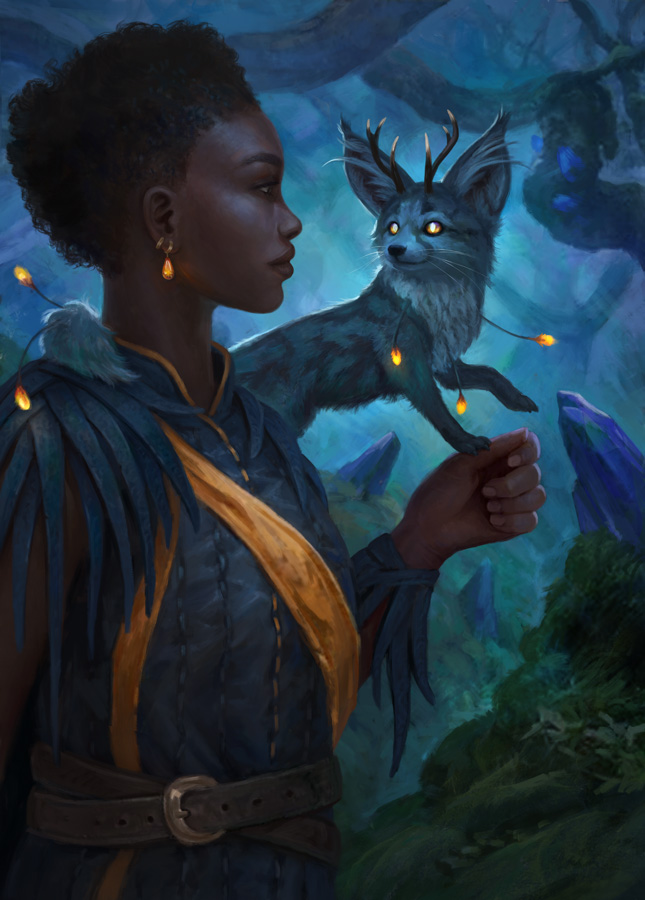

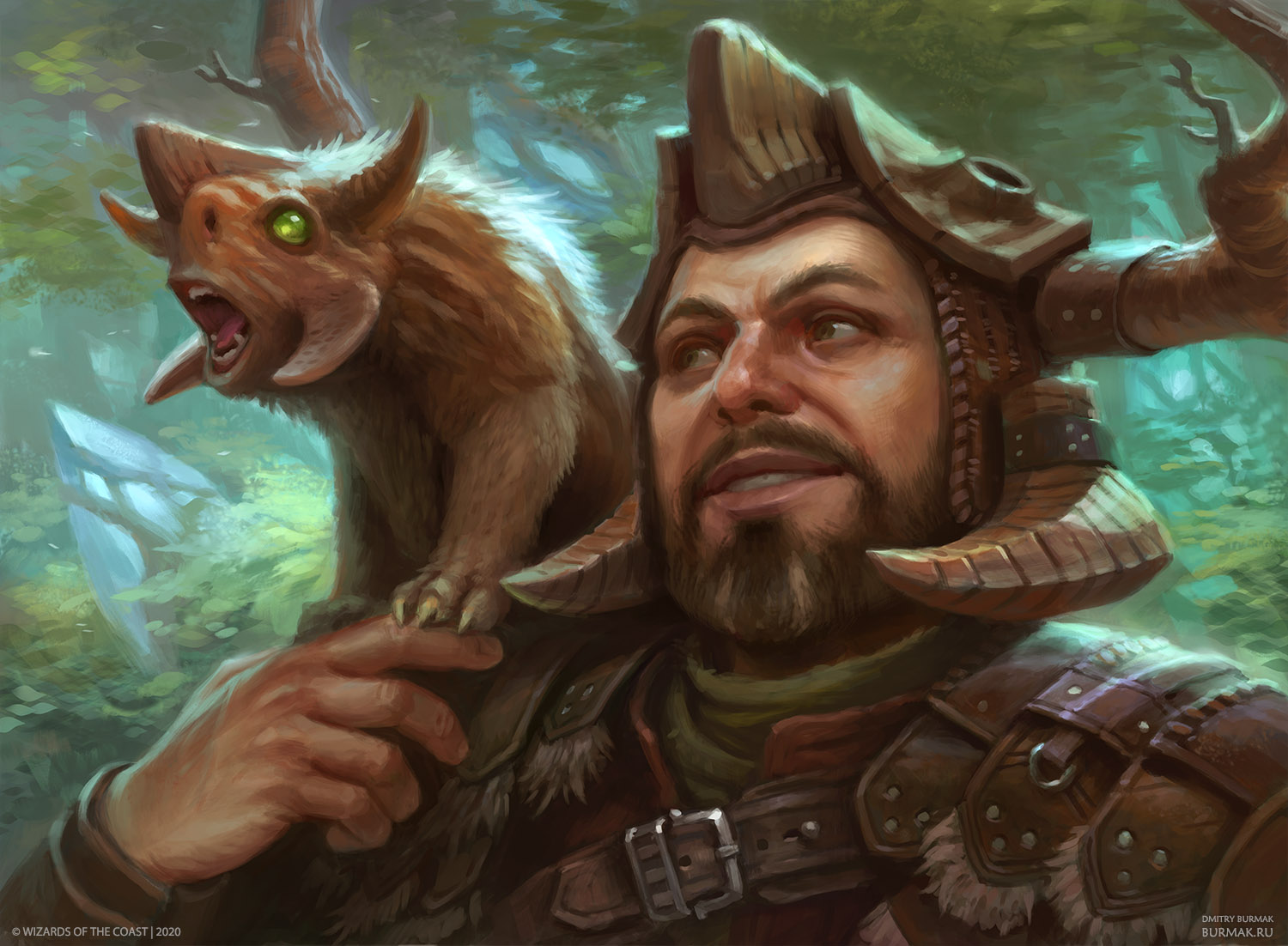



The Wildkeeper
Holding true to his instincts, a wood elf stands still in a silent grove, waiting as the hordes of undead surround him. At the very last second, a bright burst of lightning zips from a nearby tree to his shoulder. Bringing his palm up to caress the face of his companion, he is now confident in his victory.
Watching from the darkness, a half-orc crawls through the mud as rain pours down overhead. He is a blade in the night, unseen and unheard. However, as he stealthily moves beside the underbrush towards his target, he is aware that he is not the only predator stalking his prey. A flash of purple mist disperses just as quick as it occurred, revealing a creature with the visage of a skeletal wolf, its jaws firmly clamped deep into the neck of the half-orc's target.
Searching through the masses of bodies after a battle, a dwarven soldier cries out for his missing half. With the speed of a cracking whip, a small squirrel-like creature appears at his side, chirping in a sing-songy voice. He smiles down at the animal, as if welcoming an old friend.
Be they a pair on a covert mission to assassinate a political figure, or a powerful general riding his spirit into battle, a wildkeeper and his spirit animal are representatives of the raw strength achieved by joining man and beast. They are not gods, nor are they of the fey or druids. On the contrary, they are simply a devastating reminder of the power two parties can obtain when they work together. When a wildkeeper is born, their spirit gives life to an animal companion. This animal companion is usually brought to the physical world for the first time through a ceremony, or some other ritual.
Hard-Fought Victors
Hailing from the forests, wildkeepers focus on training their bonded animals. They practice fighting techniques known only to them, complimenting their combat abilities with that of their animal's. Wildkeepers focus their energy on strengthening their bonds to further unlock the capabilities of their spirit animal.
However magical their spirit bond may seem, not every wildkeeper knows spells, as their spirits do not pull from the weave, but from the natural energies of the Material Plane. Due to this source, they are often observed meditating in nature, as a way to strengthen their inner power.
Never Alone
Whether a baker, farmer, soldier, or mercenary, a wildkeeper will never be without their closest ally. Often times, their bond will grant them attention from those unknowing of wildkeeper traditions, be it negative or positive. Regardless, they are well respected for their tactical abilities on the battlefield, and their often friendly disposition off of it. That's not to say that wildkeepers are always friendly. All wildkeepers have a relationship with their animal companion that reflects their true nature. While some may be kind and welcoming, others are just as easily malicious and spiteful.
The unbreakable bond that wildkeepers possess conveniently makes them perfect for adventuring, since they have no fear of the loneliness most quests entail. When interacting with an only child, those without any pets, or those who have never taken a spouse, wildkeepers converse with an air of exasperation around them. They are still fairly fast to get over their internal struggle, though, as they know to judge a person's worth not by face, but by fortitude. Misguided single folk may be inept when it comes to the ways of friendship and trust, but they always have the chance to prove themselves.
Creating a Wildkeeper
As you create your wildkeeper character, consider the nature of the ritual that gave you your particular capabilities. Was your life bond forged under the glow of a full moon, during a ceremony conducted by an ancient shaman? Did you discover your animal by accident during a near-death experience? Or did you instead receive careful teachings as you were brought up by an elder wildkeeper, eager to show you their ways? You might even be just now discovering your bond, many years into your life.
How do you treat your spirit animal? Are you relaxed and laid-back when it comes to mistakes it makes? Or do you instead give harsh scoldings? Are you happy with the way your bond works? Or does having one make you self conscious? Is there any goal that you feel you were placed on this plane to achieve? Is your bond getting in the way of you succeeding? Are you best friends with your spirit twin, pushing everyone else away but it? Or do you instead try to spend as much time possible socializing with others, attempting to distance yourself from its alien ways?


The Wildkeeper
| Level | Proficiency Bonus | Features | Wildbond Attack |
|---|---|---|---|
| 1st | +2 | Wildbond, Realized Spirit | 1d6 |
| 2nd | +2 | Adaptive Body | 1d6 |
| 3rd | +2 | Bond Sight, Fang Over Fang |
1d6 |
| 4th | +2 | Ability Score Increase, Growth in Power | 1d6 |
| 5th | +3 | Extra Attack | 1d8 |
| 6th | +3 | Spirit Feature | 1d8 |
| 7th | +3 | Spirit Strikes, Wild Knowledge | 1d8 |
| 8th | +3 | Ability Score Increase | 1d8 |
| 9th | +4 | Animal Heart, Wild Knowledge (2) | 1d8 |
| 10th | +4 | Adaptive Body (second choice) | 1d8 |
| 11th | +4 | Spirit Feature | 1d10 |
| 12th | +4 | Ability Score Increase | 1d10 |
| 13th | +5 | Natural Luck (one use) | 1d10 |
| 14th | +5 | Spirit Feature | 1d10 |
| 15th | +5 | Spirit Vitality, Twin Confidence | 1d10 |
| 16th | +5 | Ability Score Increase | 1d10 |
| 17th | +6 | Natural Luck (two uses) | 1d12 |
| 18th | +6 | Adaptive Body (third choice) | 1d12 |
| 19th | +6 | Ability Score Increase | 1d12 |
| 20th | +6 | Synced Soul | 1d12 |
Optional Rule: Multiclassing
Ability Score Minimum. In order to multiclass, you must have at least a 13 in Dexterity and Wisdom to take a level in this class, or to take a level in another class if you are already a wildkeeper.
Proficiencies Gained. If wildkeeper isn't your initial class, you gain proficiency in simple weapons, shields, light armor, and one skill from the wildkeeper list when you take your first level in this class.
Quick Build
You can make a wildkeeper quickly by following these suggestions. First, make Dexterity your highest ability score, followed by Wisdom. Second, choose the outlander background.
Class Features
Hit Points
- Hit Dice: 1d8 per wildkeeper level
- Hit Points at 1st Level: 8 + your Constitution modifier
- Hit Points at Higher Levels: 1d8 (or 5) + your Constitution modifier per wildkeeper level after 1st
Proficiencies
- Armor: Light armor, shields
- Weapons: Simple weapons, blowgun, net, whip
- Tools: None
- Saving Throws: Strength, Dexterity
- Skills: Choose three from Acrobatics, Animal Handling, Athletics, Investigation, Insight, Performance, Nature, Perception, and Survival
Equipment
You start with the following equipment:
- (a) a whip or (b) any simple weapon
- (a) a shield or (b) two daggers
- (a) a shortbow and a quiver of 20 arrows or (b) a light crossbow and 10 bolts
- An explorer's pack, leather armor, and a hunting trap.
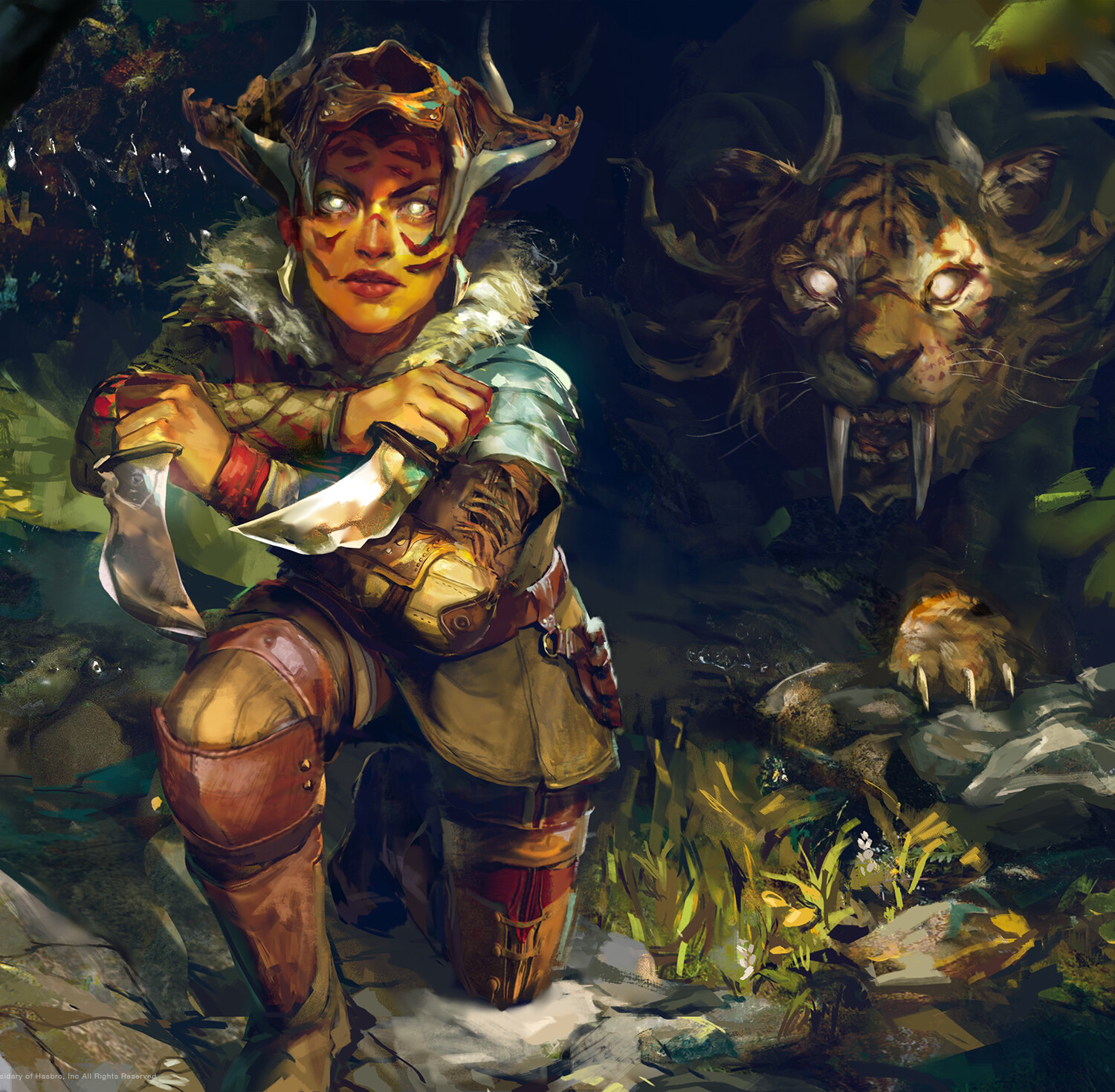


Wildbond
1st-level wildkeeper feature
Your spirit manifests itself as an animal that you are linked to, your wildbond. It is friendly to you and your companions, and it obeys your commands. See the wildbond's game statistics in the wildbond stat block. You determine the creature's appearance, such as how many legs it has, and whether it is Tiny or Small; your choice doesn't effect its game statistics.
You must also choose the natural weapon it has, such as claws, horns, or hooves, and whether it deals bludgeoning, piercing, or slashing damage. Once you choose your wildbond's natural weapon, you cannot change it again.
The damage die of your wildbond's natural weapon attack changes as you gain wildkeeper levels, as shown in the Wildbond Attack column of the Wildkeeper table.
On your turn, you can use your action to command your wildbond to make a natural weapon attack, or to take the Dash, Dodge, Help, Hide, Ready, or Search action. You can also choose for your wildbond to move up to its movement speed at any time during your turn (no action required). Your wildbond must be able to hear you to understand your commands.
If you hit a creature with a weapon attack, your wildbond has advantage on the next attack it makes against that crea-
ture before the end of your next turn.
If your wildbond drop to 0 hit points, it becomes part of your spirit once more, leaving behind no physical form. Alternatively, as an action, you can cause your wildbond to disappear into your spirit temporarily.
While your wildbond is part of your spirit, you can use your bonus action on your turn to bring it back to your side. When you do so, the wildbond regains a number of hit points equal to 1d8 + your Wisdom modifier. It then reappears at the start of your next turn in an unoccupied space within 5 feet of you.
When your wildbond is part of your spirit, you can alternatively spend a minute meditating. This meditation can be completed during a short or long rest. At the end of the minute, your wildbond reappears in an unoccupied space within 5 feet of you with all of its hit points restored.
Realized Spirit
1st-level wildkeeper feature
Wildkeepers pull their strength from the conceptual power sources of their choosing. Choose a spirit that you wish to realize within yourself. Choose Spirit of the Dark, Spirit of the Elements, Spirit of the Giant, Spirit of War, or Spirit of the Wild, all detailed at the end of the class description. The spirit you choose grants you features at 1st level and again at 6th, 11th, and 14th level.
Adaptive Body
2nd-level wildkeeper feature
Your spirit bond's strength sparks evolution, granting unique abilities. Choose from one of the following options. You can choose a second option when you reach 10th level, and a third option when you reach 18th level.
Adhesive Coating. You and your wildbond gain
climbing speeds equal to your movement speeds, and
can fight while climbing without risk of falling.
Awakened. Your mind is opened to the secrets of nature. Your wildbond's Intelligence score increases to 7, and it can now speak one language that you know.
In addition, whenever you make an Intelligence (Nature) check, you are considered proficient in the skill and add double your proficiency bonus to the check, instead of your normal proficiency bonus.
Fleet Footed. Your wildbond's body has grown more nimble. Your wildbond is no longer slowed by nonmagical difficult terrain.
Gills. Your wildbond manifests gills. It can now breathe air and water. In addition, you both gain a swimming speed equal to your movement speed. You lose your swimming speed while wearing heavy armor.
Luminescent. Light radiates from your soul. As an action, you can command your wildbond to cast the light cantrip innately at will. When it casts this spell in this way, the spell lasts until it is dispelled.
Wings. Your wildbond grows a pair of wings. It gains a flying speed equal to its movement speed. In addition,
when you make a high jump, you can now leap 5 feet
higher.
Wildbond
Tiny or Small beast
- Armor Class 12 + PB
- Hit Points Your Wisdom modifier + 5 times your wildkeeper level
- Speed 30 ft.
STR DEX CON INT WIS CHA 12 (+1) 14 (+2) 11 (+0) 4 (-3) 10 (+0) 8 (-1)
- Condition Immunities charmed, exhaustion
- Senses darkvision 60 ft., passive Perception 10
- Languages understands the languages you speak
- Proficiency Bonus (PB) equals your bonus
Agile. The wildbond doesn't provoke opportunity attacks when it moves out of an enemy's reach.
Bond. You add your proficiency bonus to any ability check or saving throw that the wildbond makes.
Actions
Natural Weapon. Melee Weapon Attack: Dexterity modifier + PB, reach 5 ft., one target. Hit: wildbond attack die + Dexterity modifier + PB damage.
Bond Sight
3rd-level wildkeeper feature
You can now use your wildbond's eyes as if they were your own. As an action, if your wildbond is on the same plane of existence as you, you can see through its eyes and hear what it hears until the start of your next turn, gaining the benefits of any special senses that the wildbond has. During this time, you are deaf and blind in regard to your own senses.
Fang Over Fang
3rd-level wildkeeper feature
You and your wildbond have developed a unique method of fighting in combat, building off of each other's attacks with dangerous momentum.
If your wildbond hits a creature with an attack, you have advantage on the next attack you make against that creature before the end of your next turn.
When you hit a creature with a weapon attack, your wildbond can use its reaction to make a natural weapon attack against that creature.
Ability Score Improvement
4th, 8th, 12th, 16th, and 19th-level wildkeeper feature
Each time you gain this feature, you can increase one ability score of your choice by 2, or you can increase two ability scores of your choice by 1.
In addition, you can increase one of your wildbond's ability scores of your choice by 2, or you can increase two of its ability scores of your choice by 1.
As normal, you can't increase an ability score above 20 using this feature.
Growth in Power
4th-level wildkeeper feature
Your strength progresses, enlarging your spirit. You can choose to have your wildbond increase by one size, for example from Tiny to Small, or stay the same size as it previously was.
Extra Attack
5th-level wildkeeper feature
You can attack twice, instead of once, whenever you take the Attack action on your turn. You can choose to command your wildbond to attack in place of one of these attacks.
Spirit Strikes
7th-level wildkeeper feature
Your wildbond's natural weapon attacks count as magical for the purpose of overcoming resistance and immunity to nonmagical attacks and damage.
Wild Knowledge
7th-level wildkeeper feature
When you reach 7th level and again at 9th level, you gain proficiency in one skill of your choice from the list of skills available to wildkeepers at 1st level.
Animal Heart
9th-level wildkeeper feature
Your wildbond has gained the ability to converse with animals. Your wildbond can crudely convey ideas to beasts with an Intelligence score lower than 9, and can discern any simple information they converse back.
You learn any information it learns this way.
Natural Luck
13th-level wildkeeper feature
You can reroll any roll that your wildbond makes. If you do so, you must use the new roll. Once you use this feature to turn a failure into a success you must finish a long rest before you can do so again.
You can use this feature twice between long rests starting at 17th level.
Spirit Vitality
15th-level wildkeeper feature
The power of your being is strengthened by your bond. You can add your Wisdom modifier to Charisma saving throws you or your wildbond make.
Twin Confidence
15th-level wildkeeper feature
The mere presence of your spirit animal brings you unparalleled confidence. You have advantage on Charisma checks and saving throws you make while within 5 feet of your wildbond.
Synced Soul
20th-level wildkeeper feature
You have fully bonded with your spirit animal. You can com-mand it to take an action as a bonus action on your turn.
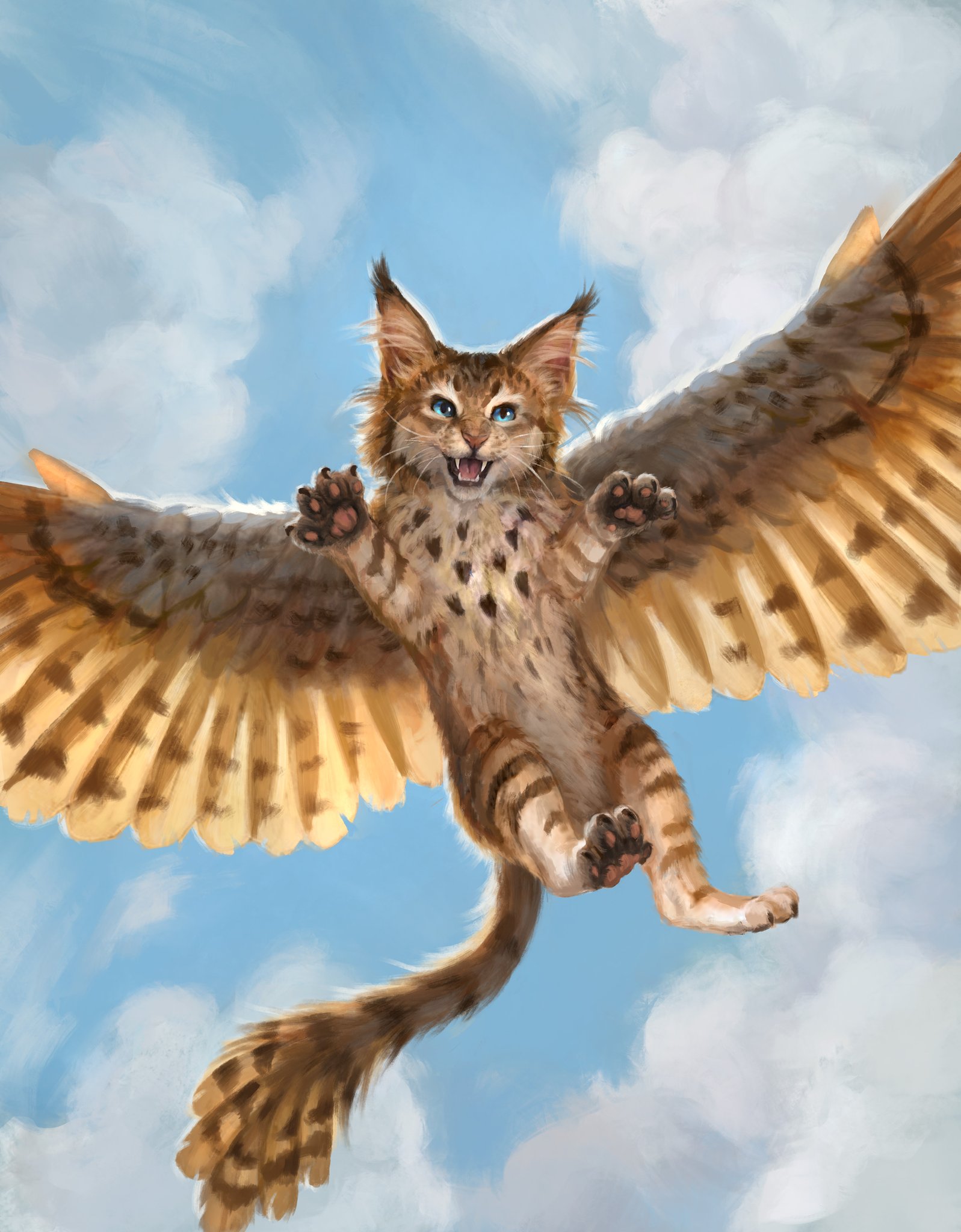





Realized Spirit
Wildkeepers can follow many different spirits that strengthen and enlighten them. Here are the spirit options you can choose from at 1st level.
Spirit of the Dark
Your spirit now walks a path most often forbidden. Corrupted wildkeepers, as many call them, are beastmasters that have tapped into dark spirit magic, granting them the power of the night. Their wildbond's body becomes darker, its eyes glow a faint purple or yellow, and its hide writhes due to the necrotic energy within. Most see this alteration of your spirit bond as twisted and inhumane, some might even openly condemn you for allowing it to happen. You see it as another way to further strengthen your spirit bond, no matter the shadow it grants your reputation.
Nightbonder
1st-level Spirit of the Dark feature
Your spirit bond draws power from the night. You and your wildbond can now see normally in darkness, both magical and nonmagical, to a distance of 120 feet.
In addition, when you and your wildbond are within 30 feet of each other, you can add your Wisdom modifier to any Dexterity (Stealth) checks either of you make.
One with Death
6th-level Spirit of the Dark feature
You tap into forbidden magic to strengthen your spirit. You and your wildbond gain resistance to necrotic damage.
In addition, you now have advantage on death saving throws you make.
Second Growth
6th-level Spirit of the Dark feature
Your spirit has further grown. You can choose to have your wildbond increase by one size, for example from Tiny to Small, or stay the same size as it previously was.
Shadow Creature
11th-level Spirit of the Dark feature
When your wildbond is in dim light or darkness, you can command it to teleport to an unoccupied space you can see. It must use its movement speed when it does so, as though it had walked that distance. If you are within 5 feet of your wildbond when it teleports, you can choose to teleport alongside it.
If the wildbond makes an attack on the same turn it teleports in this way, the attack deals an additional 1d8 necrotic damage.
Life Sapper
14th-level Spirit of the Dark feature
You have fully bonded with the spirit of the dark. You and your wildbond gain immunity to necrotic damage.
Additionally, when you or your wildbond have advantage on an attack, you can choose to forgo that advantage. If the attack hits, it deals an additional 2d8 necrotic damage and you or your wildbond (your choice) regain hit points equal to the necrotic damage dealt.
You can use this feature a number of times equal to your Wisdom modifier (a minimum of once). You regain any expended uses when you finish a long rest.
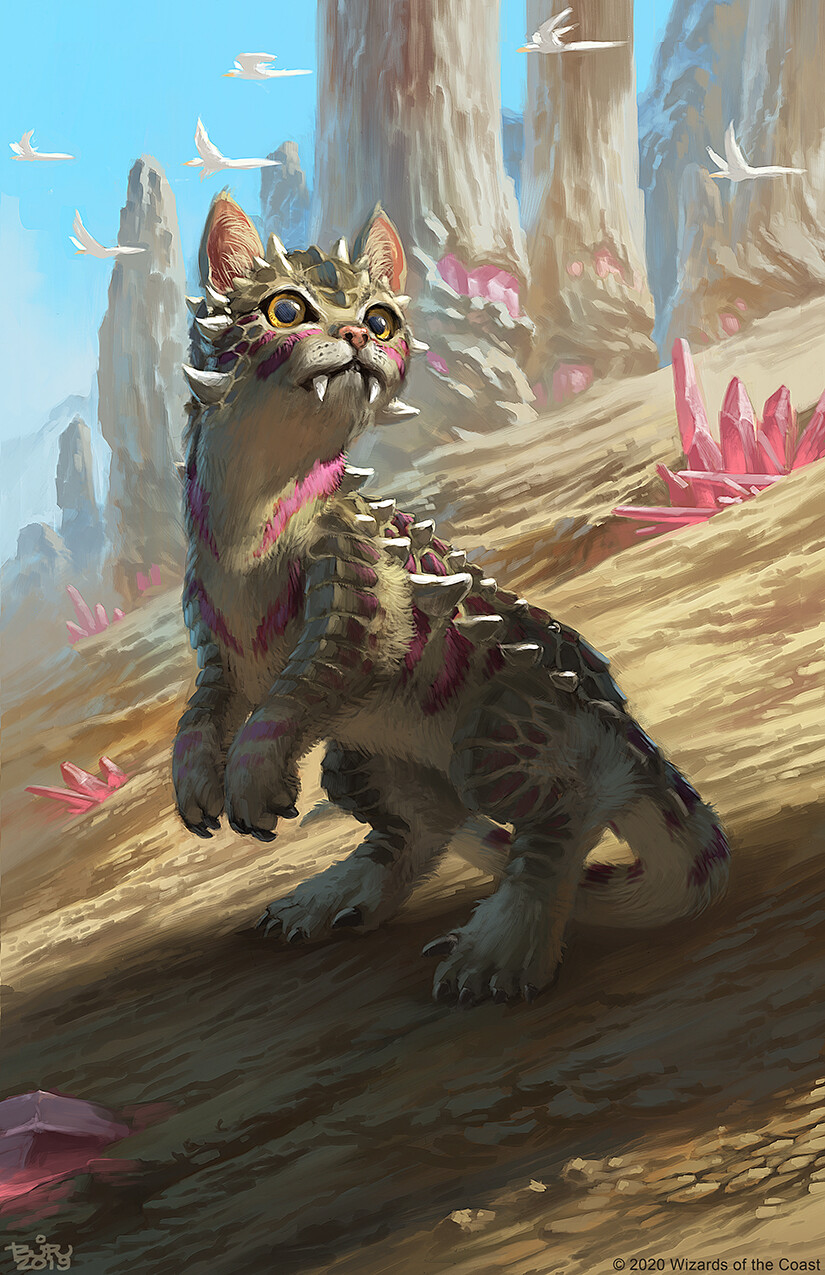


Spirit of the Elements
Your spirit walks the paths that dwell in the Elemental Planes. A Spirit of the Elements wildkeeper connects themselves to planes beyond their own to better understand their native realm. In harnessing the elements, they achieve a sort of zen, a one-with-nature state of mind most often seen in druids. Their wildbonds tend to be happier, their connection to the different planes giving them newfound peace and energy. They are not to be underestimated, however, as the energy they pull from has ravaged the Material Plane for eons, and will do so for eons more.
Spellcasting
1st-level Spirit of the Elements feature
Your bond draws power from the innate elemental magic of the world.
Cantrips. You learn two cantrips of your choice from the druid spell list. You learn an additional druid cantrip of your choice at 10th level.
Spell Slots. The Spirit of the Elements Spellcasting table shows how many spell slots you have to cast your spells of 1st level and higher. To cast one of these spells, you must expend a slot of the spell’s level or higher. You regain all expended spell slots when you finish a long rest.
For example, if you know the 1st-level spell snare and have a 1st-level and a 2nd-level spell slot available, you can cast snare using either slot.
Spells Known of 1st-Level and Higher. At 3rd level, you learn three 1st-level druid spells of your choice.
The Spells Known column of the Spirit of the Elements Spellcasting table shows when you learn more druid spells of 1st level or higher. Each of these spells must be of a level for which you have spell slots. For instance, when you reach 7th level in this class, you can learn one new spell of 1st or 2nd level.
Whenever you gain a level in this class, you can replace one of the druid spells you know with another spell of your choice from the druid spell list. The new spell must be of a level for which you have spell slots.
Spellcasting Ability. Wisdom is your spellcasting ability for your druid spells, since your magic draws on your attunement to nature. You use your Wisdom whenever a spell refers to your spellcasting ability. In addition, you use your Wisdom modifier when setting the saving throw DC for a druid spell you cast and when making an attack roll with one.
Spell Save DC
Spell attack modifier
Conduit of Nature
1st-level Spirit of the Elements feature
When you cast a spell with a range other than self, you can choose to have the spell originate from your wildbond. Your wildbond must be within 100 feet of you, and it must use its reaction to deliver the spell when you cast it. If the spell re-quires an attack roll, you use your attack modifier for the roll.
Spirit of the Elements Spellcasting
| Wildkeeper Level | Cantrips | Spells Known | 1st | 2nd | 3rd | 4th |
|---|---|---|---|---|---|---|
| 1st | 2 | — | — | — | — | — |
| 3rd | 2 | 3 | 2 | — | — | — |
| 4th | 2 | 4 | 3 | — | — | — |
| 7th | 2 | 5 | 4 | 2 | — | — |
| 8th | 2 | 6 | 4 | 2 | — | — |
| 10th | 3 | 7 | 4 | 3 | — | — |
| 11th | 3 | 8 | 4 | 3 | — | — |
| 13th | 3 | 9 | 4 | 3 | 2 | — |
| 14th | 3 | 10 | 4 | 3 | 2 | — |
| 16th | 3 | 11 | 4 | 3 | 3 | — |
| 19th | 3 | 12 | 4 | 3 | 3 | 1 |
| 20th | 3 | 13 | 4 | 3 | 3 | 1 |
When you cast a spell through your wildbond, the spell's element can alter its physical form. This effect lasts until the start of your next turn, unless otherwise stated. Different damage types have different effects, as detailed below.
Acid. Your wildbond drips with corrosive fluid. If a creature hits your wildbond with an attack while within 5 feet of it, the creature takes 1d4 acid damage. This effect then ends.
Cold. Your wildbond exudes a chilling mist. If a creature targets your wildbond with an attack while within 5 feet of it, it has disadvantage on the roll. This effect then ends.
Fire. Your wildbond is wreathed in flames. For the duration of this effect, it ignites any flammable objects it touches that aren't being worn or carried.
Lightning. Your wildbond becomes a bolt of lightning. It can move through a space as narrow as 1 inch wide without squeezing for the duration of this effect.
Poison. Your wildbond leaks behind a sticky goo. Wherever it walks becomes difficult terrain for creatures other that itself for the duration of this effect.
Thunder. If a creature hits your wildbond with an attack while within 30 feet of it, the creature is deafened until this effect ends.
Primordial Defense
6th-level Spirit of the Elements feature
Your spirit is so in tune with the elements that you can manifest their form physically. At the end of a long rest, choose a damage type from acid, cold, fire, lightning, poison, or thunder. You and your wildbond have resistance to the chosen damage type until the next time you choose an option through this feature.
Elemental Synchronicity
11th-level Spirit of the Elements feature
When you cast a spell as an action, you can command your wildbond to attack as part of that same action. If the spell you cast deals one of the damage types present in the Primordial Defense feature, your wildbond's attack deals an additional 1d4 of that damage type if it hits.
Environmental Fluidity
14th-level Spirit of the Elements feature
You and your wildbond now gain immunity instead of resistance to the damage type you choose as part of Primordial Defense.
In addition, you can cast a spell of 1st level or higher once without expending a spell slot if the spell deals the damage type you last chose for Primordial Defense.
Once you use this feature to cast a spell, you can't use it again until you finish a long rest.
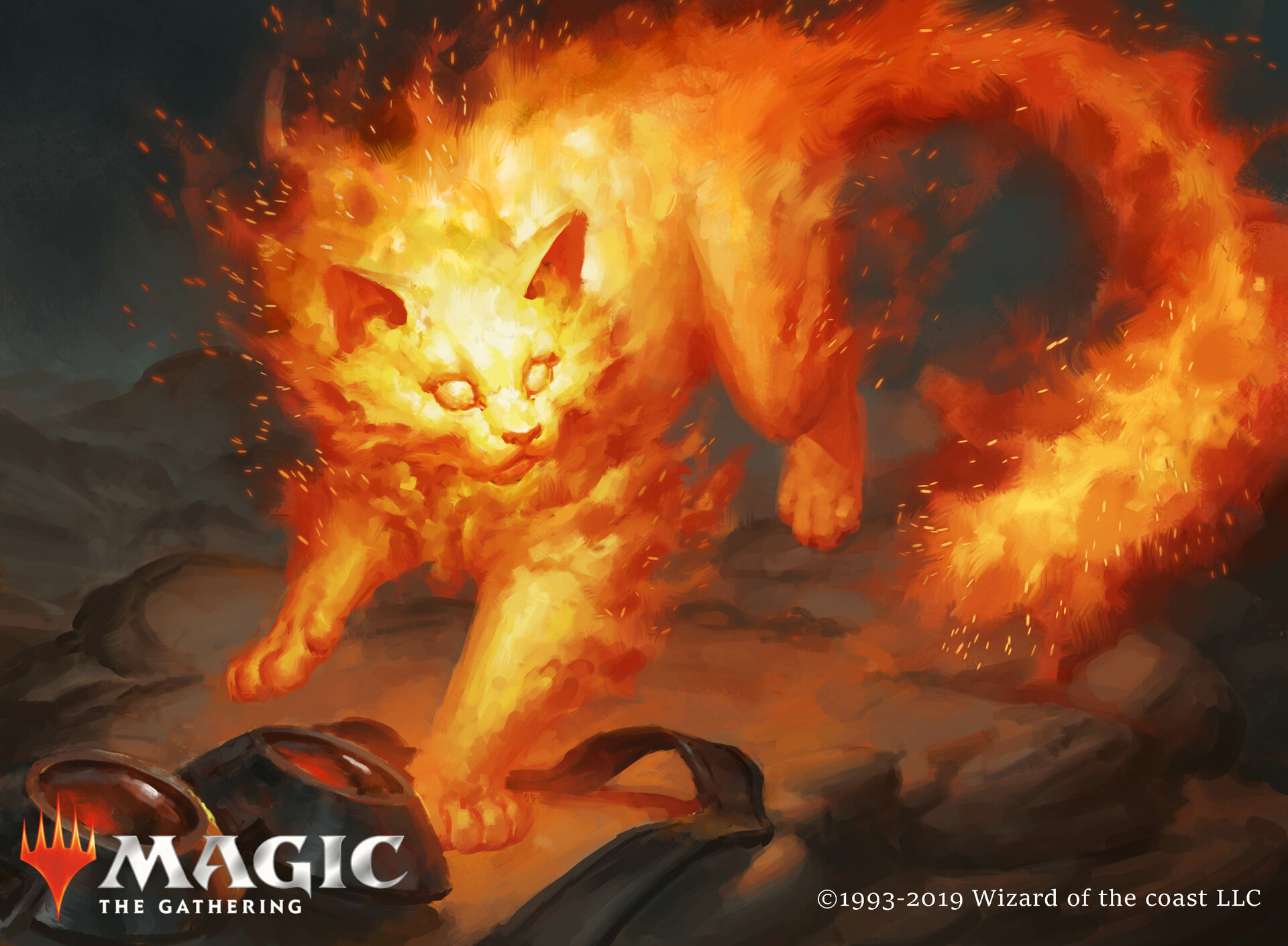



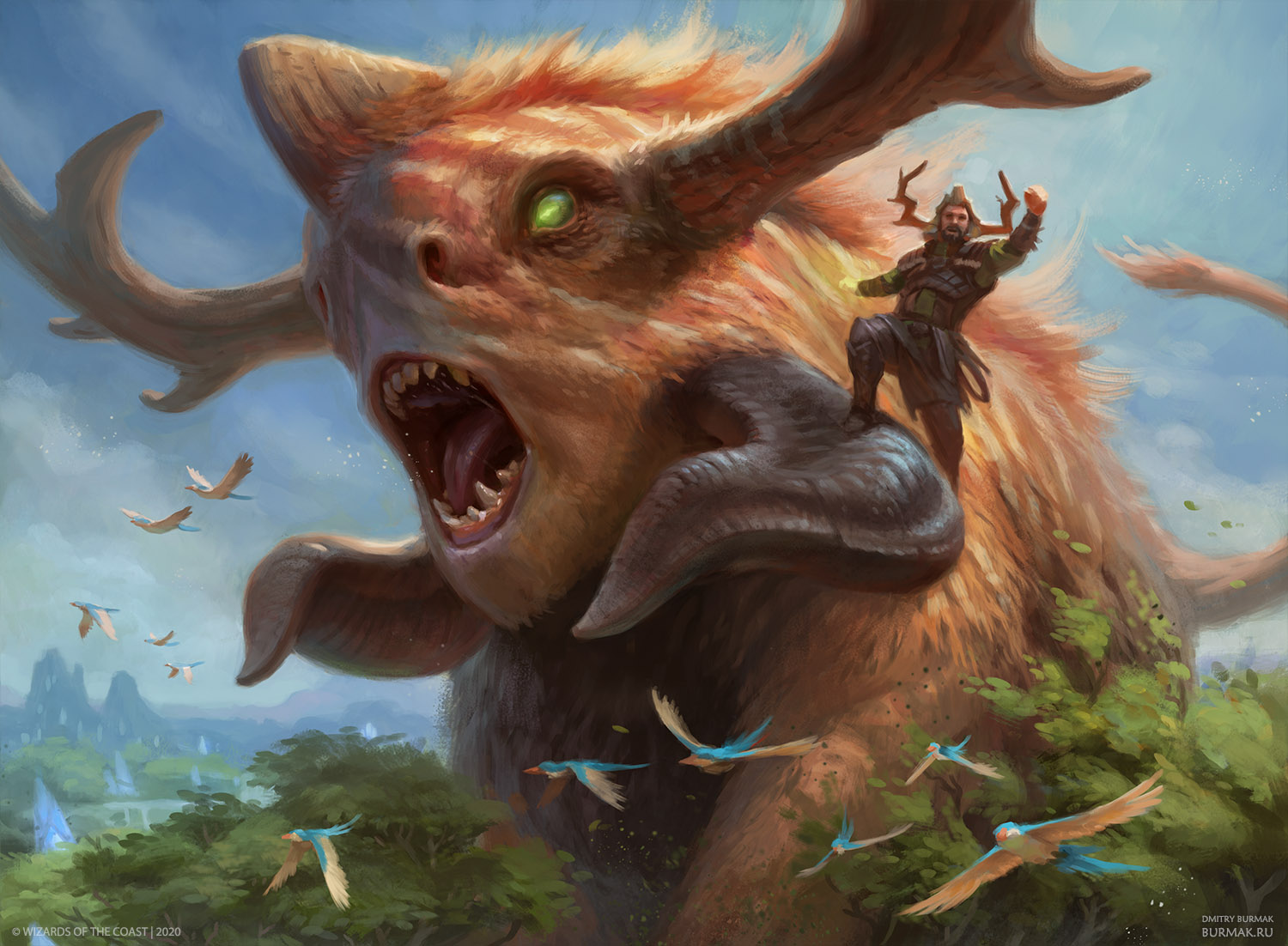



Spirit of the Giant
Your spirit walks the path of the great beasts of yore. While wildkeepers that realize the Spirit of the Giant are few and far between, they are nevertheless the perfect example of a truly soulful bond between beast and master. Always aiming to improve alongside each other, you grow in spirit as your wildbond grows in size and fortitude. Your pride and love for your wildbond knows no bounds. Most see this growth as a great accomplishment achieved by the wildkeeper, as they are often kind hearted and helpful.
Spirit Growth
1st-level Spirit of the Giant feature
Your bond is boundless, overflowing your soul. Your wildbond's size increases to Medium when you choose this spirit, and further increases as you gain wildkeeper levels, as denoted in the table below. The Growth in Power class fea-ture is accounted for in the table.
Wildbond Size
| Level | Size |
|---|---|
| 1 | Medium |
| 4 | Large |
| 11 | Huge |
Bulky Build
1st-level Spirit of the Giant feature
The fortitude of your spirit changes your physical nature. The hit point maximums of both you and your wildbond each increase by 1 and increase by 1 again whenever you gain a level in this class.
In addition, your wildbond has advantage on Strength (Athletics) checks it makes when pulling, lifting, or carrying.
Size Control
6th-level Spirit of the Giant feature
The growth of your wildbond offers you unique insight on how to control its metamorphosis. When you command your wildbond on your turn, you can cause it to change size (no action required). You can choose for its size to change to Tiny, back up to its maximum, or anything in between.
Your wildbond has different benefits depending on its size. It has advantage on Charisma (Persuasion) checks it makes when interacting with creatures larger than it, and advantage on Charisma (Intimidation) checks it makes when interacting with creatures smaller than it.
Weighted Strikes
11th-level Spirit of the Giant feature
Your wildbond's natural weapon attacks now score a critical hit on a roll of 19 or 20.
Additionally, it can roll one additional damage die when determining the extra damage for a critical hit it scores.
Grant Power
14th-level Spirit of the Giant feature
As an action, you can command your wildbond to enhance its size and power dramatically for 1 minute. This effect ends early if your wildbond is reduced to 0 hit points or if you dismiss it as a bonus action on your turn. While the transformation is active, your wildbond gains the following benefits:
- Its size increases to Gargantuan.
- It gains temporary hit points equal to your Wisdom modifier (a minimum of one) at the start of each of your turns.
- Its AC increases by 2, and it has advantage on Strength and Constitution saving throws.
- Its natural weapon attack's reach increases to 15 feet.
Once you use this ability, you can't use it again until you finish a short or long rest.
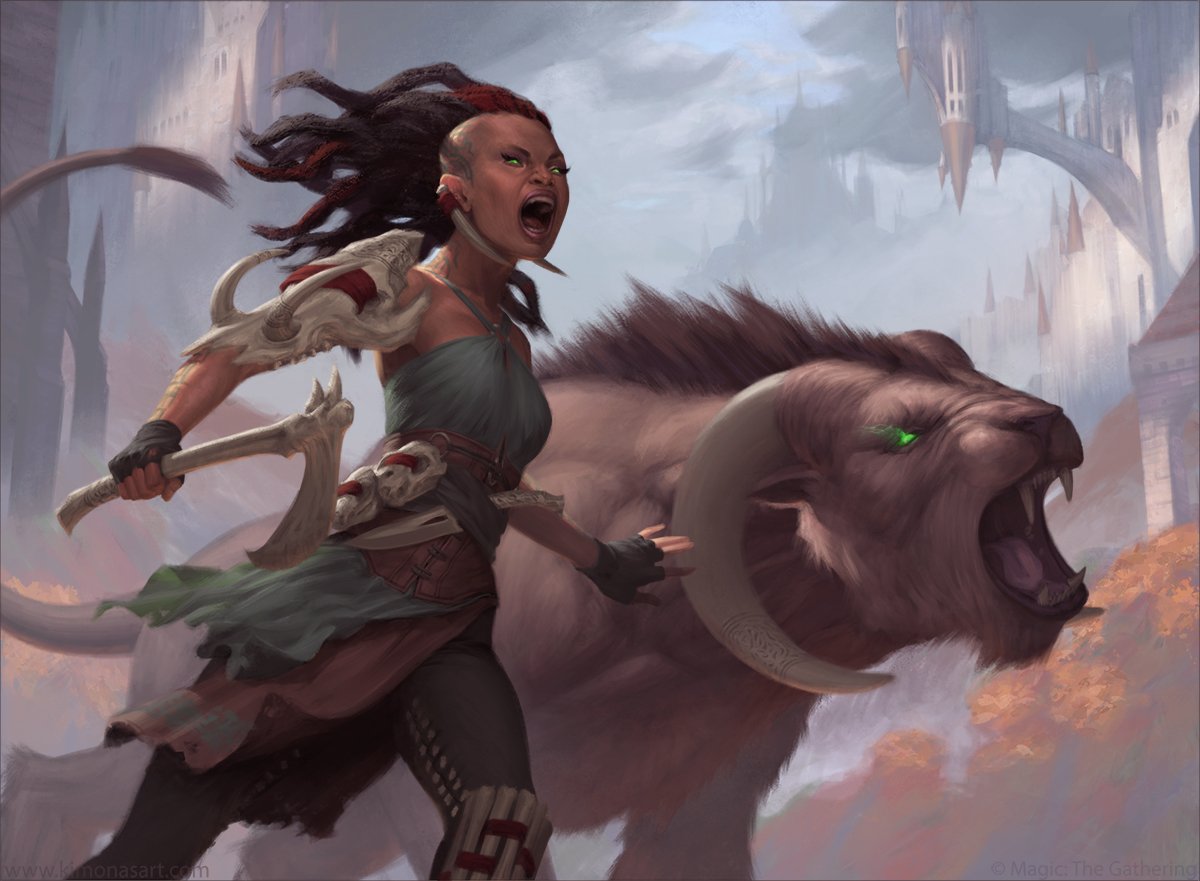



Spirit of War
Your spirit now walks the path of beasts who have been weaponized for warfare. A wildkeeper that realizes the Spirit of War is one of combat expertise. With the fighting spirit within you constantly pushing you to hone its edge, the strength and teamwork are of you and your spirit animal is unmatched by beastmasters across the lands. You both remain eternally alert in combat, seeming to know eachother's moves before you make them, striking at the optimal time to ensure a devastating flurry of attacks.
Bonus Proficiency
1st-level Spirit of War feature
You gain proficiency with medium armor and martial weapons.
Ferocious
1st-level Spirit of War feature
You have learned to strike in tandem with your wildbond. If you have advantage on a melee weapon attack, you can choose to forego that advantage to instead allow your wildbond to make one attack at the same time as you.
You can use this feature once, and regain the ability to do so when you roll initiative again, or when you finish a short or long rest.
Quick to Strike
6th-level Spirit of War feature
You have learned how to pounce like a predator. Immediately after initiative is rolled, you can use your reaction to quickly strike. You and your wildbond can move up to half your movement speeds, and then each make a melee weapon attack.
In addition, you can add your Wisdom modifier to your initiative rolls.
Second Growth
6th-level Spirit of War feature
Your spirit has further grown. You can choose to have your wildbond increase by one size, for example from Tiny to Small, or stay the same size as it previously was.
Onslaught
11th-level Spirit of War feature
When you command your wildbond to attack, it can attack twice instead of once.
Spirit Roar
14th-level Spirit of War feature
Your spirit bond has been tempered by your combat experience, letting you harness your wildbond's innate vocal power. As an action, each creature of your choice within 60 feet of you that can hear you must succeed on a Wisdom saving throw against a DC equal to 8 + your Proficiency bonus + your Wisdom modifier or become frightened of you for 1 minute. A creature can repeat the saving throw at the end of each of its turns, ending the effect on itself on a success. If a creature's saving throw is successful or the effect ends for it, the creature is immune to this feature for the next 24 hours
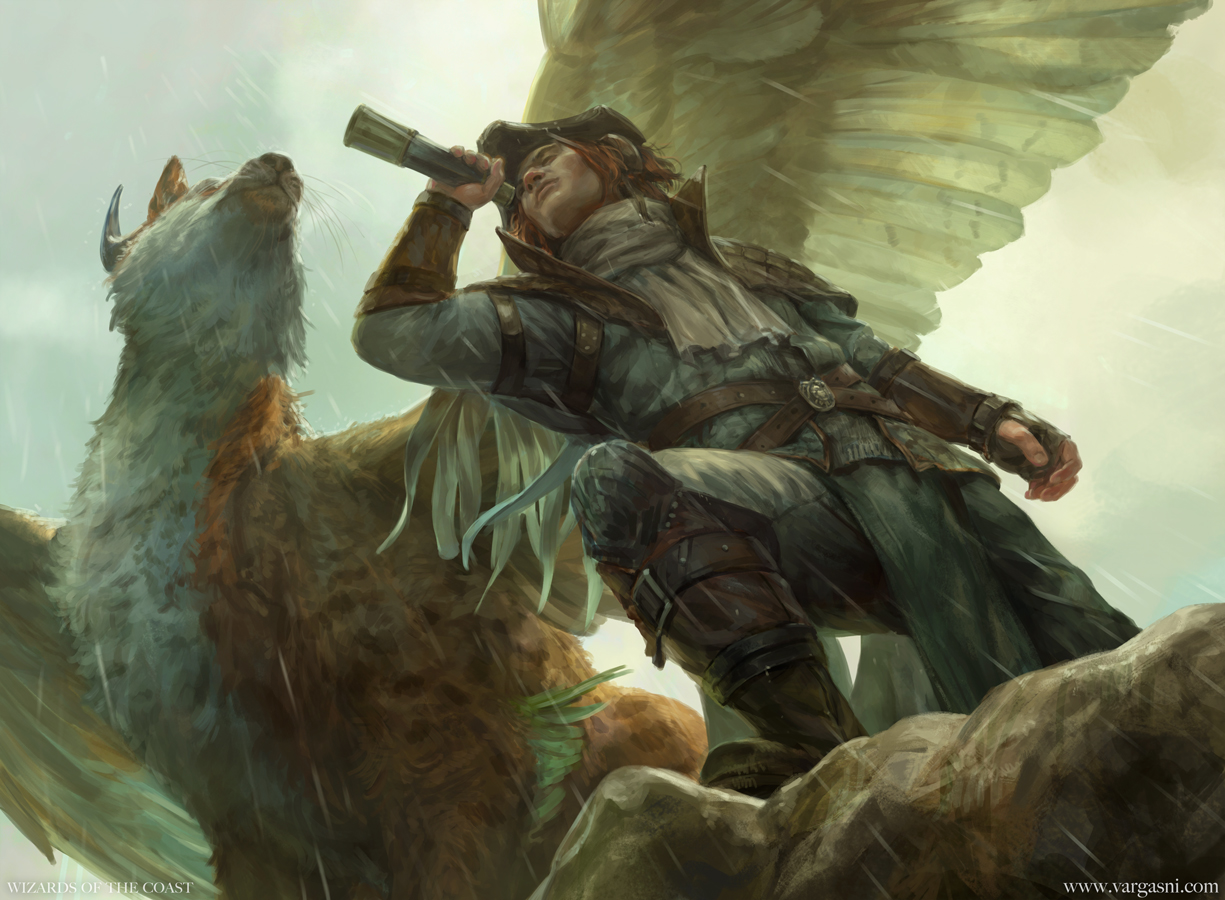



Spirit of the Wild
The most common spirit realized by wildkeepers, the Spirit of the Wild is one wrought with hardship. Only the strongest spirits can brave the brambles, swamps, storms, and crags they must face, both physical and metaphorical. To strengthen themselves, these wildkeepers become worldly beings, learning to see the world from the eyes of every culture they come across. They learn foreign languages, navigate treacherous terrain, and forage for any food they can find along the way. To find themselves, and attain a true mastery of their bond, they must walk every road on the larger path that is life. Fortunately, they are never along, always able to count on their animal companion to guide them back to the apth when they've been led astray.
Bonus Proficiency
1st-level Spirit of the Wild feature
You gain proficiency with either navigator’s tools or cartographer supplies (your choice).
Well-Traveled
1st-level Spirit of the Wild feature
Your soul and body have wandered extensively, you gain the following benefits:
- You are able to speak, read, and write two extra languages of your choice.
- You can take the Search or Hide action as a bonus action on your turn. When you do so, you can command your wildbond to take the same action.
- Your wildbond has advantage on Wisdom (Perception) checks that rely on hearing or smell.
Second Growth
6th-level Spirit of the Wild feature
Your spirit has further grown. You can choose to have your wildbond increase by one size, for example from Tiny to Small, or stay the same size as it previously was.
Trailblazer
6th-level Spirit of the Wild feature
Your experiences with the wilds have given you insight on how to navigate them. You gain the following benefits when traveling for an hour or more:
- Difficult terrain doesn’t slow your group’s travel.
- Your group can’t become lost except by magical means.
- Even when you are engaged in another activity while traveling (such as foraging, navigating, or tracking), you remain alert to danger.
- If you are traveling with just your wildbond, you can move stealthily at a normal pace.
- When you forage, you find twice as much food as you normally would.
- While tracking other creatures, you also learn their exact number, their sizes, and how long ago they passed through the area.
Mark of the Wild
11th-level Spirit of the Wild feature
When you hit a creature with a weapon attack, you can choose to mark it for your wildbond for 1 minute. The first time your wildbond hits that creature on each of your turns for the duration, you can increase the attack's damage by 1d6.
You can use this feature to mark an enemy a number of times equal to your proficiency bonus, and you regain all expended uses when you finish a long rest.
Ultimate Being
14th-level Spirit of the Wild feature
Your wild nature has reached its zenith. You can choose to gain three additional options from the Adaptive Body class feature. Moreover, you can no longer be tracked by any means, unless you choose to leave a trail.
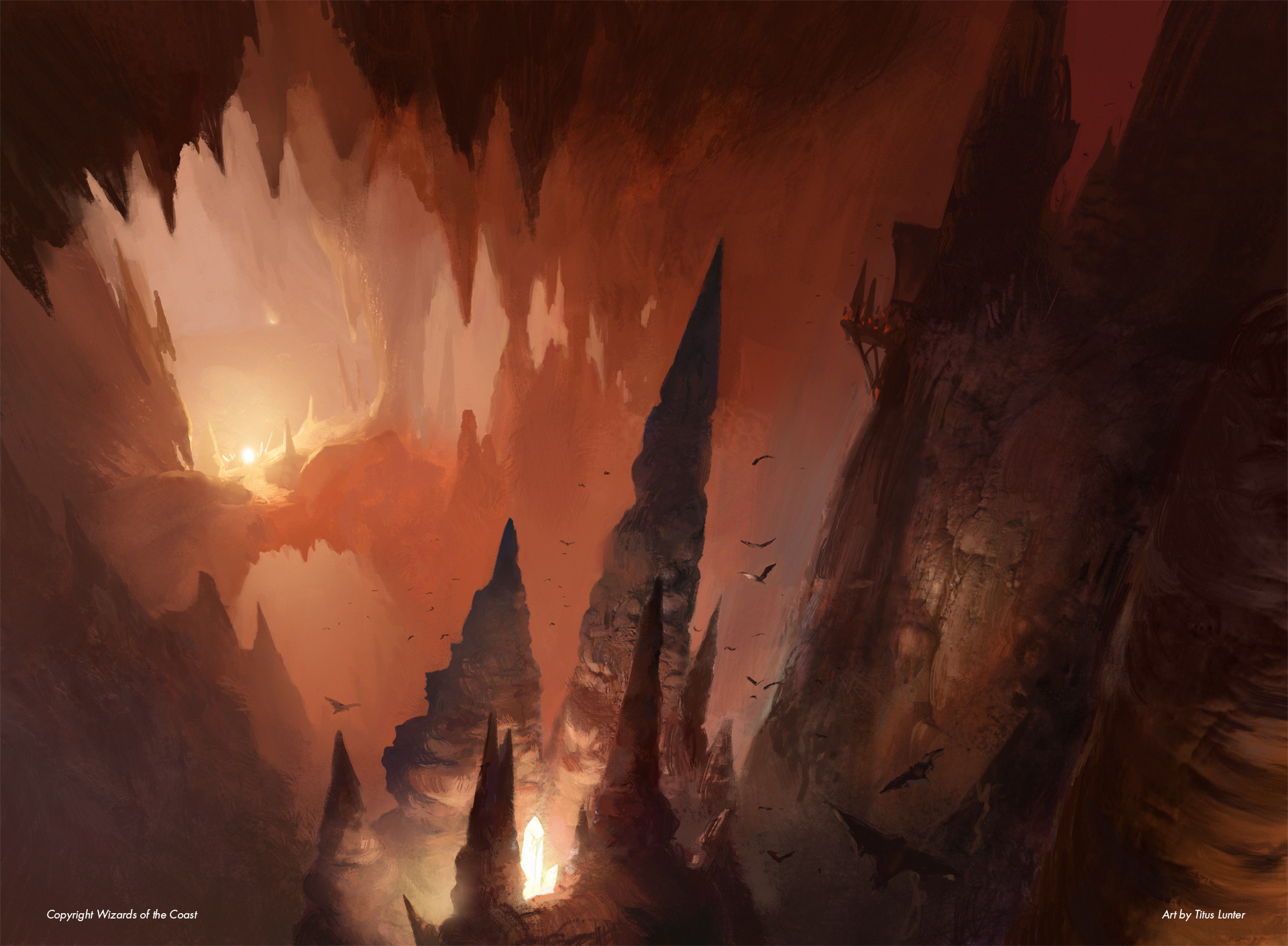
The Wildkeeper
A companion-based class for the world's greatest roleplaying game. Strengthen your bond by fighting alongside your spirit animal. Choose a Spirit Path from: the Dark, the Elements, the Giant, War, or the Wild!
This is the eighth public version of the Wildkeeper class. It is ready to be playtested!
Version 3.1
Created by /u/xSHIGUYx
Art Credits
Cover: Farfinder - Leesha Hannigan
Page 1: Proud Wildbonder - Dmitry Burmak
Page 2: Plains - Sidharth Chaturvedi
Page 3: Avenging Huntbonder - Evyn Fong
Page 4: Cat Bird - Leesha Hannigan
Page 5: Cunning Nightbonder - Ekaterina Burmak
Page 6: Dinosaur Cat Token - Brian Valeza
Page 7: Chandra's Embercat - Johan Grenier
Page 8: Fully Grown - Dmitry Burmak
Page 9: Gruul Beastmaster - Kimonas Theodossiou
Page 10: Alert Heedbonder - Randy Vargas
Back: Mountain - Titus Lunter
Watercolor Stains: Jared Ondricek
Support me at patreon.com/dungeonmastershi to gain access to PDFs and future versions of all my homebrew content!